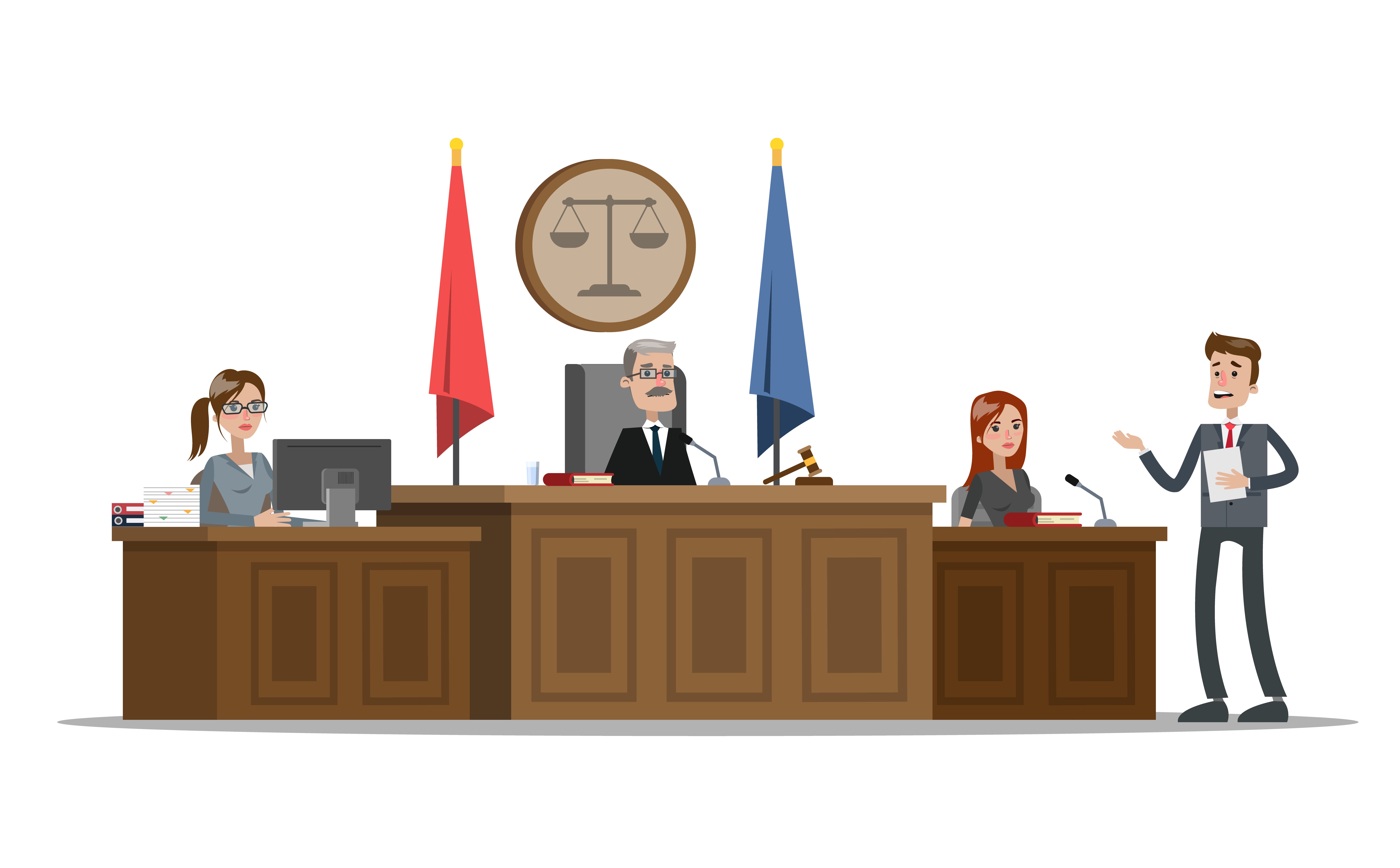Banner artwork by Mono_Abe / Shutterstock.com
All companies, at some point, are faced with the question of whether to litigate or not to litigate. In-house counsel are often the first to be consulted when this question arises and are heavily involved in navigating the waters to arrive at an informed decision. The analysis must be realistic (as opposed to hopeful) in evaluating and analyzing the company’s goals, range of outcomes, risks, and costs.
This article provides advice to assist business leaders with reaching well-informed decisions about whether and when to litigate a dispute.
Make a realistic assessment
Evaluation of the merits
Companies faced with the prospect of litigation must first evaluate the merits of the dispute. The facts relevant to the dispute (including specific documents and other backup) should be collected, verified, and organized chronologically and/or topically. The legal issues implicated should be identified and the relevant facts should then be applied to the law to evaluate potential liability. All legal theories and defenses should be identified and evaluated. This includes “known unknowns,” i.e., facts known to exist, but which cannot yet be fully analyzed to determine their potential impact. Consider the following example:
A general contractor enters into a construction contract to build an apartment building on the owner’s property. The owner supplies the design, plans, and specifications. The general contractor hires trade subcontractors to perform elements of the work. After the apartment building is completed and is in use, the concrete foundation begins showing signs of distress and cracks appear. Who is to blame?
In the above hypothetical example, one fundamental “known unknown” is the cause of the distress. Was the foundation installed incorrectly by the general contractor or was the design faulty? Is the foundation unstable? Was the correct concrete mix used? Is it some combination of factors? The answers to these questions will likely not be known initially, but clearly are fundamentally important to the assessment of fault, liability, and recovery.
The availability of proof must also be considered when making an evaluation of the merits. Potential witnesses should be identified. Are they current employees, former employees, or third-party witnesses? Will they be cooperative or uncooperative? Experienced trial counsel can be very helpful in identifying witnesses critical to the dispute, conducting witness interviews, and assessing witness credibility and how the witnesses will perform at deposition and trial.
Not all information collected when evaluating the merits will be admissible evidence at trial. Determining what is admissible and what is not, and evaluating which evidence supports or undermines the company’s position, is critical.

Subject-matter experts should be engaged where necessary or appropriate to provide insight into technical or scientific issues. Ideally, outside counsel should retain the experts, and pre-litigation work should be done at the direction of counsel so that the expert’s investigation and work is protected by the attorney-client privilege and/or work-product doctrine. This is particularly important to protect the work and opinions of non-testifying experts. Early retention of experts — even before the commencement of litigation — can prove to be extremely useful and helpful.
Consideration must also be given to the forum in which litigation can or will be conducted. In this regard, questions of jurisdiction and venue should be resolved. If the dispute is contractual in nature, the contract’s forum selection clause must be consulted to determine the forum and applicable state law. If the circumstances allow for a choice of forum, consideration should be given to the nature of the dispute, the sophistication of the judiciary, the makeup of the jury pool, the time to trial, and appeal.
Not all information collected when evaluating the merits will be admissible evidence at trial. Determining what is admissible and what is not, and evaluating which evidence supports or undermines the company's position, is critical.
Evaluation of potential outcomes
Critical to the determination of whether to litigate is the performance of a serious evaluation of the potential likely outcomes, including an assessment of all claims, counterclaims, defenses, and third-party claims. Assessing the risks involved and the probability of recovery, liability, and question of damages is an absolute necessity before commencement of litigation.
Evaluation of cost, time, and resources
Attorney fees and costs (e.g., for travel and other expenses) must be considered. Such an evaluation will require a reasonable (albeit preliminary) budget encompassing all phases of the process, from the filing of the complaint through trial. Additionally, expert fees should be estimated, including investigation, expert reports, deposition testimony, and trial testimony. Electronic discovery — one of the most expensive components of litigation — should be evaluated and an estimate prepared for electronically stored information (ESI) collection and processing costs, the review of ESI for responsiveness and case development (i.e., issue coding) and privilege review. An estimate of trial duration should also be made. Further, an evaluation of client resources is important because litigation requires hands-on client involvement. The evaluation should include the cost and time commitment required of employees and an assessment of the degree of distraction to company personnel the litigation will cause.

Evaluation of recovery potential
As the plaintiff in litigation, it’s great to win — but can you collect?! It makes little sense to spend the time and effort to take a dispute to trial only to find out that the defendant is unable to pay the judgment. That’s why the defendant’s financial ability to pay a judgment should be assessed before deciding to sue. In addition, the existence of insurance should be considered, including the number of potentially applicable policies and whether the collective policy limits are sufficient to fund a damages award or to pay a judgment.
Evaluation of liability potential
Parties cannot control the ultimate result. Thus, the financial impact to the company of a loss must be evaluated prior to engaging in litigation. How much of a loss is the company able or willing to absorb? Is there insurance coverage? Does it cover a judgment? Does it provide for the appointment of counsel to defend the company? If so, an assessment should be made regarding whether the appointed counsel is acceptable to the company. If counsel is not acceptable, the company should attempt to negotiate with its carrier for counsel that is acceptable.
Making a reasonable assessment of the dispute at the outset allows business leaders to reach well-informed decisions about whether and when to litigate a dispute.
Mediation
Mediation should almost always be considered as an alternative to litigation. Mediation, which is “marriage counseling for businesspeople,” utilizes a neutral third party to facilitate a resolution on mutually acceptable terms. The advantages of mediation are that it is flexible, informal, non-binding, confidential, and inadmissible. Either the parties agree to settle or they don’t. There are no “rulings.” Mediation can often be conducted in a day or two and, unlike litigation, requires a modest investment of time and money. Even a mediation that does not result in settlement can shed new light on the dispute and provide context for the positions each party has taken. It also is important that the parties select an experienced mediator with a track record of success and expertise in the subject matter of the dispute.

Know when not to litigate
Whether you choose to sue your adversary or are forced into litigation by being sued, a dual focus on resolution should also be maintained. On the one hand, all steps should be taken to win at trial. On the other hand, the company should proactively look for every reasonable settlement opportunity and employ a trial strategy that enhances the opportunity for settlement.





